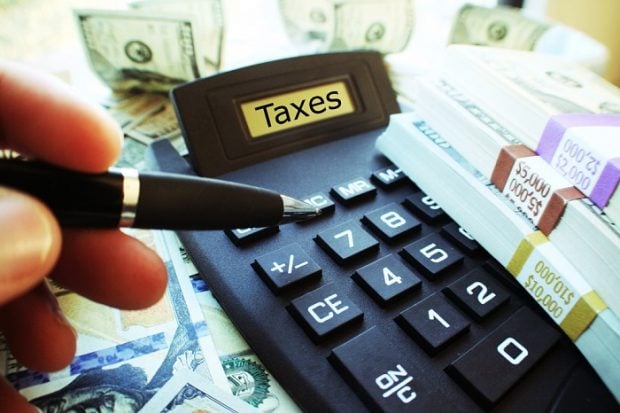 If you haven't paid the right amount all year long, you could get hit with a penalty come tax time. (Photo: Shutterstock)
If you haven't paid the right amount all year long, you could get hit with a penalty come tax time. (Photo: Shutterstock)
Retirees beware: The new tax law could cost you.
Reuters reports that retirees could find themselves in hot water for underpayment of taxes.
Not just on income from tax-deferred retirement accounts but also pensions and annuities. And don't think that if your income is higher, that's going to be all you're liable for; you might even owe taxes on Social Security benefits, too.
It depends on personal circumstances whether you'll end up paying more or less, but if you haven't paid the right amount all year long, you could get hit with a penalty come tax time.
Said the report, “The penalty is determined by multiplying an interest rate, determined by the IRS, by your underpaid amount; the current interest rate is 5 percent. Taxation of retirement income by states is all over the map but your state tax return also could be impacted.”
Earlier this month the IRS warned retirees to check on amounts “that are being paid in quarterly installments or withheld.” And if anything isn't up to snuff, there's time to set it right before year's end.
To avoid a penalty the report cites Greg Rosica, partner in EY's private client services practice in New York City, who suggests basing payments on the prior-year taxes and pay “at least 100 or 110 percent of that amount.”
Rosica also says that another way is to project what you owe for the current year and pay at least 90 percent in four quarterly installments, with the final quarterly payment for 2018 due on January 15, 2019.
Then there's annualized income installment, used by taxpayers whose income comes in uneven levels throughout the year. It smooths out how much is owed quarterly by using a reasonable estimate of annual income.
Chapter Two of IRS Publication 505 has more information.
Retirees receiving a monthly pension or annuity check might have to change federal withholding.
If you've been underpaying, send in the unpaid amount as quickly as you can to avoid further accrual of penalties. And because it's so late in the year, you might have to fork it over yourself instead of relying on a former employer.
You can also work with the Social Security Administration to arrange withholding on benefits “at one of four flat rates as part of an overall withholding plan; you can initiate withholding by filing IRS Form W-4v.”
© Touchpoint Markets, All Rights Reserved. Request academic re-use from www.copyright.com. All other uses, submit a request to [email protected]. For more inforrmation visit Asset & Logo Licensing.






